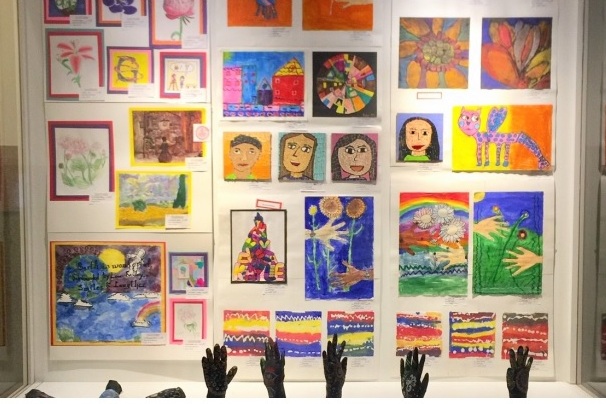New Delhi, December 22, 2024: UNESCO’s Regional Office for South Asia has released the sixth edition of its flagship report, Rhythms of Learning: The 2024 State of the Education Report for India, focusing on culture and arts education. The report emphasizes the transformative potential of culture and arts education in fostering creativity, promoting equity, strengthening social cohesion, and advancing sustainable development.
The report is the first to adapt UNESCO’s Framework for Culture and Arts Education to India’s unique cultural and educational landscape. Tim Curtis, Director and Representative of UNESCO South Asia Regional Office, highlighted its significance: “This report will contribute to further promoting the role of culture and arts education in India by providing insightful information and practices for all. Culture and arts education is a transformative tool for fostering creativity, critical thinking, and empathy – essential skills for addressing the complex challenges of today’s world.”
Senior officials from India’s education and culture ministries emphasized the alignment of the report’s findings with national policies. Shri Sanjay Kumar, Secretary of the Department of School Education & Literacy, said, “I hope this report will further inspire educational initiatives that harness the power of culture and arts.”
Ms. Lily Pandeya, Joint Secretary, Ministry of Culture, added, “Integrating culture and arts into education equips students with creativity, critical thinking, and cultural awareness, essential for their holistic development.”
Mr. Anil Kumar Singhal, Additional Secretary (Samagra Shiksha-II), Ministry of Education, linked the report to India’s National Education Policy (NEP) 2020, stating, “There should not be any hard and fast silos in terms of arts and science education, vocational and academic education.”
The report also connects to the National Curriculum Framework for School Education (NCF-SE) 2023, which recognizes arts education as an essential curricular area up to the secondary stage. Professor Dinesh Prasad Saklani, Director of NCERT, noted the alignment with global frameworks, including the one adopted at the 2024 Abu Dhabi World Conference on Culture and Arts Education.
Authored by the Srishti Manipal Institute of Art, Design & Technology, the report combines policy reviews, interviews, case studies, and survey data to highlight exemplary practices in culture and arts education across India. It outlines strategies like Art-Integrated Learning (AIL) and preserving traditional knowledge, in alignment with India’s NEP and NCF.
The report concludes with ten recommendations for stakeholders, including creating a steering committee, strengthening rural-urban connections, enhancing teaching capacity, and employing technology to increase accessibility. Additional recommendations include establishing centres of excellence, launching undergraduate programs, and creating a national repository and assessment system for culture and arts education.
The launch event featured a live musical performance by the Naadvistaar Foundation, highlighting the central theme of integrating arts and education to inspire creativity, cultural pride, and shared humanity.




















.jpg)



